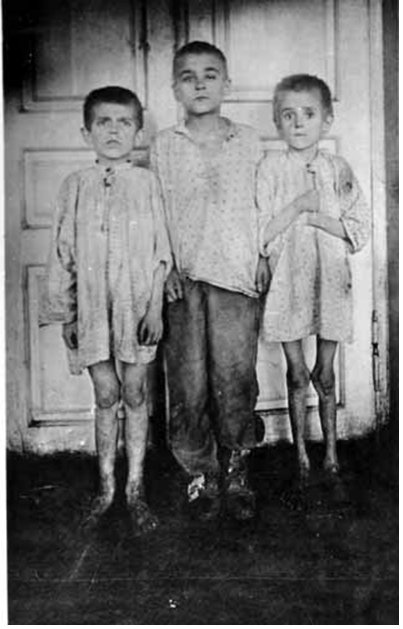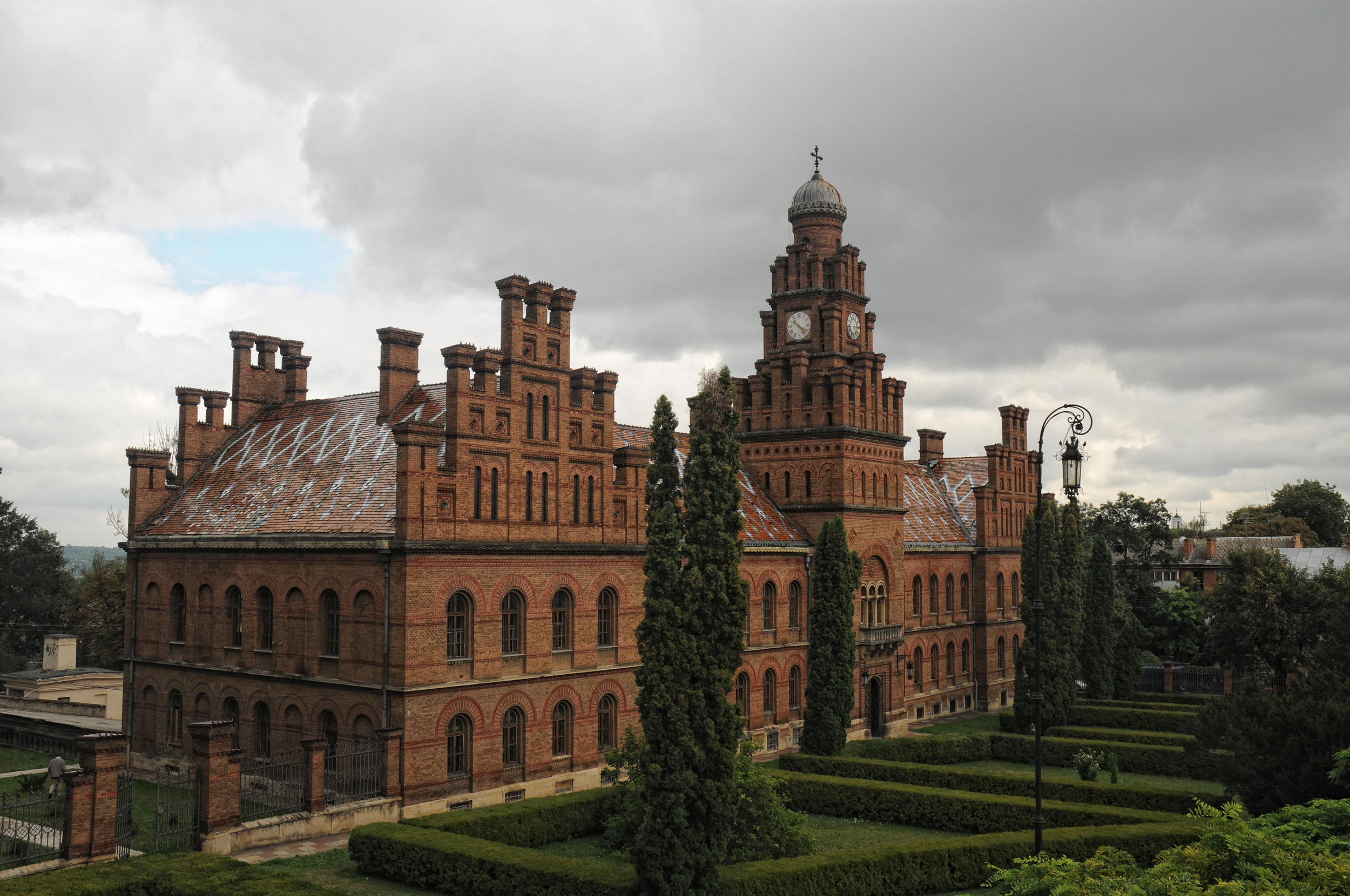|
Dnipro Academy Of Continuing Education
The Dnipro Academy of Continuing Education is a higher education institution of communal ownership, located in the city of Dnipro and subordinate to the Dnipropetrovsk Regional Council. It provides training, retraining and advanced training for pedagogical, scientific and pedagogical workers, management personnel, professional junior bachelors, bachelors, masters and postgraduate students. History On December 21, 1939, the Resolution of the Presidium of the Dnipropetrovsk Regional Executive Committee No. 350.: was adopted on the reorganization of the regional methodical cabinet into the Institute for the Improvement of Teachers' Qualifications. At first, the institute had 5 educational and methodological offices (pedagogy, language and literature, history and geography, physics and mathematics, primary school); its staff consisted of only 9 people. The first acting director was O.T. Smolyar, deputy director - M.S. Buryak, and in September 1940, E.T. Nikolayenko was appointed to ... [...More Info...] [...Related Items...] OR: [Wikipedia] [Google] [Baidu] |
Dnipro
Dnipro is Ukraine's fourth-largest city, with about one million inhabitants. It is located in the eastern part of Ukraine, southeast of the Ukrainian capital Kyiv on the Dnieper River, Dnipro River, from which it takes its name. Dnipro is the Capital (political), administrative centre of Dnipropetrovsk Oblast. It hosts the administration of Dnipro urban hromada. Dnipro has a population of Archeological evidence suggests the site of the present city was settled by Cossacks, Cossack communities from at least 1524. Yekaterinoslav ("glory of Catherine") was established by decree of the Emperor of all the Russias, Russian Empress Catherine the Great in 1787 as the administrative center of Novorossiya Governorate, Novorossiya. From the end of the 19th century, the town attracted foreign capital and an international, multi-ethnic workforce exploiting Kryvbas iron ore and Donbas coal. Renamed Dnipropetrovsk in 1926 after the Ukrainian Communist Party of the Soviet Union, Communist ... [...More Info...] [...Related Items...] OR: [Wikipedia] [Google] [Baidu] |
Primary Education
Primary education is the first stage of Education, formal education, coming after preschool/kindergarten and before secondary education. Primary education takes place in ''primary schools'', ''elementary schools'', or first schools and middle schools, depending on the location. Hence, in the United Kingdom and some other countries, the term ''primary'' is used instead of ''elementary''. There is no commonly agreed on duration of primary education, but often three to six years of elementary school, and in some countries (like the US) the first Primary education in the United States, seven to nine years are considered primary education. The International Standard Classification of Education considers primary education as a single phase where programs are typically designed to provide fundamental reading, writing, and mathematics skills and establish a solid foundation for learning. This is International Standard Classification of Education#Level 1, ISCED Level 1: Primary educatio ... [...More Info...] [...Related Items...] OR: [Wikipedia] [Google] [Baidu] |
Higher Education In Ukraine
Higher education in Ukraine operates several levels, all of which are regulated by the Ministry of Education and Science of Ukraine. In early 2016, Ukraine had 802 universities, but the Ministry intends to lower that number to 317. Ukraine had 1,586,700 higher education students in 2016-17. For specific universities, see the List of universities in Ukraine. Brief historical survey The first higher education institutions (HEIs) emerged in Ukraine during the late 16th and early 17th centuries under the Kingdom of Poland. * The first was the Ostrozka School, or Ostrozkiy Greek-Slavic-Latin Collegium, similar to Western European higher education institutions of the time. Established in 1576 in the town of Ostrog, the Collegium was the first higher education institution in the Eastern Slavic territories but was closed in 1636, when it was replaced by the Jesuit College in Ostrog. * The Kyiv Mohyla Academy was established in 1632 and in 1694 officially recognized by the govern ... [...More Info...] [...Related Items...] OR: [Wikipedia] [Google] [Baidu] |
Public Administration
Public administration, or public policy and administration refers to "the management of public programs", or the "translation of politics into the reality that citizens see every day",Kettl, Donald and James Fessler. 2009. ''The Politics of the Administrative Process''. Washington D.C.: CQ Press and also to the academic discipline which studies how public policy is created and implemented. In an academic context, public administration has been described as the study of government decision-making; the analysis of policies and the various inputs that have produced them; and the inputs necessary to produce alternative policies. It is also a subfield of political science where studies of policy processes and the structures, functions, and behavior of public institutions and their relationships with broader society take place. The study and application of public administration is founded on the principle that the proper functioning of an organization or institution relies on effectiv ... [...More Info...] [...Related Items...] OR: [Wikipedia] [Google] [Baidu] |
Management
Management (or managing) is the administration of organizations, whether businesses, nonprofit organizations, or a Government agency, government bodies through business administration, Nonprofit studies, nonprofit management, or the political science sub-field of public administration respectively. It is the process of managing the resources of businesses, governments, and other organizations. Larger organizations generally have three Hierarchy, hierarchical levels of managers, organized in a pyramid structure: * Senior management roles include the board of directors and a chief executive officer (CEO) or a President (corporate title), president of an organization. They set the strategic goals and policy of the organization and make decisions on how the overall organization will operate. Senior managers are generally executive-level professionals who provide direction to middle management. Compare governance. * Middle management roles include branch managers, regional managers, ... [...More Info...] [...Related Items...] OR: [Wikipedia] [Google] [Baidu] |
Psychology
Psychology is the scientific study of mind and behavior. Its subject matter includes the behavior of humans and nonhumans, both consciousness, conscious and Unconscious mind, unconscious phenomena, and mental processes such as thoughts, feelings, and motivation, motives. Psychology is an academic discipline of immense scope, crossing the boundaries between the Natural science, natural and social sciences. Biological psychologists seek an understanding of the Emergence, emergent properties of brains, linking the discipline to neuroscience. As social scientists, psychologists aim to understand the behavior of individuals and groups.Hockenbury & Hockenbury. Psychology. Worth Publishers, 2010. A professional practitioner or researcher involved in the discipline is called a psychologist. Some psychologists can also be classified as Behavioural sciences, behavioral or Cognitive science, cognitive scientists. Some psychologists attempt to understand the role of mental functions in i ... [...More Info...] [...Related Items...] OR: [Wikipedia] [Google] [Baidu] |
Preschool Education
A preschool (sometimes spelled as pre school or pre-school), also known as nursery school, pre-primary school, play school, is an school, educational establishment or learning space offering early childhood education to children before they begin compulsory education at primary school. It may be publicly or privately operated, and may be subsidized from public funds. The typical age range for preschool in most countries is from 2 to 6 years. Terminology Terminology varies by country. In some European countries the term "kindergarten" refers to formal education of children classified as ''International Standard Classification of Education, ISCED level 0'' – with one or several years of such education being compulsory – before children start primary school at ''ISCED level 1''. The following terms may be used for educational institutions for this age group: *Pre-primary or creche from 6 weeks old to 6 years old – is an educational childcare service a parent can enroll t ... [...More Info...] [...Related Items...] OR: [Wikipedia] [Google] [Baidu] |
Dnipropetrovsk Oblast Council
The Dnipropetrovsk Oblast Council () is the regional oblast council (parliament) of the Dnipropetrovsk Oblast (oblast, province) located in eastern Ukraine. Council members are elected for five year terms. In order to gain representation in the council, a party must gain more than 5 percent of the total vote. Recent elections 2020 Distribution of seats after the 2020 Ukrainian local elections Election date was 25 October 2020 2015 Distribution of seats after the 2015 Ukrainian local elections Election date was 25 October 2015 2010 Distribution of seats after the 2010 Ukrainian local elections 2006 Distribution of seats after the 2006 Ukrainian local elections Chairmen Regional executive committee * Daniil Petrovsky (1932) * Nikita Alekseev (1932–1933) * Ivan Gavrilov (1933–1936) * Ivan Fedyaev (1936–1937) * Nikolay Nikitchenko (acting, 1937) * Konstantin Karavaev (1938–1940) * Pavel Naydenov (1940–1941, 1943–1944) * Georgy Dementiev (1944–1947) * I ... [...More Info...] [...Related Items...] OR: [Wikipedia] [Google] [Baidu] |
Professor
Professor (commonly abbreviated as Prof.) is an Academy, academic rank at university, universities and other tertiary education, post-secondary education and research institutions in most countries. Literally, ''professor'' derives from Latin as a 'person who professes'. Professors are usually experts in their field and teachers of the highest rank. In most systems of List of academic ranks, academic ranks, "professor" as an unqualified title refers only to the most senior academic position, sometimes informally known as "full professor". In some countries and institutions, the word ''professor'' is also used in titles of lower ranks such as associate professor and assistant professor; this is particularly the case in the United States, where the unqualified word is also used colloquially to refer to associate and assistant professors as well, and often to instructors or lecturers. Professors often conduct original research and commonly teach undergraduate, Postgraduate educa ... [...More Info...] [...Related Items...] OR: [Wikipedia] [Google] [Baidu] |






